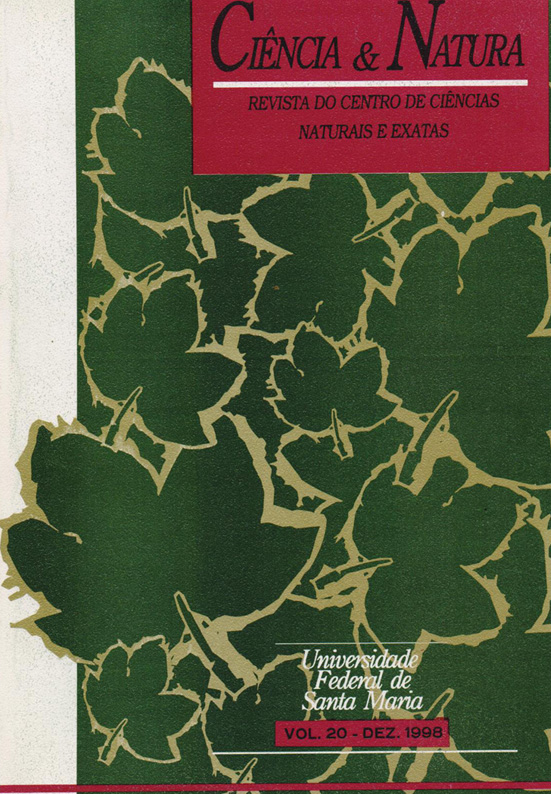Monitoramento de eleições municipais no estado do Espírito Santo - amostragem clássica e bayesiana
DOI:
https://doi.org/10.5902/2179460X26814Keywords:
Previsão eleitoral, Pesquisa de opinião, Metodologias clássica e bayesiana, Campanhas políticas.Abstract
Neste trabalho apresentamos a utilização de dois procedimentos para monitorização de uma pesquisa eleitoral: a abordagem clássica de amostragem comumente adotada e o modelo bayesiano para previsão de resultados eleitorais introduzido por Bernardo (1984), juntamente com a metodologia para seleção do número de locais descrita em Brasil & Pego e Silva (1994); nestes uma amostra de mesmo tamanho é selecionada nos locais de comportamento mais similar a toda região sendo pesquisada, no caso, o município. No período de um ano antecedendo as eleições municipais de 03/10/92, realizarmos cinco pesquisas no município de Guarapari-ES, incluindo a pesquisa de "boca-de-urna", das quais, quatro via metodologia clássica e três, via metodologia bayesiana. Em duas ocasiões, agosto e setembro de 92, as duas metodologias foram aplicadas simultaneamente sendo que algumas conclusões extraidas dessa comparação são aqui discutidas.Downloads
References
BERNARDO, J. M. (1984), Monitoring the 1982 Spanish Socialist Victory: A Bayesian analysis, J. Amer. Statist. Assoe., 79, 387, 510-515.
BRASIL, Gutemberg H. & PEGO E SILVA, Antonio Fernando (1994), Pesquisas Eleitorais: Algumas Considerações Sobre a Metodologia Bayesiana para Pesquisas Eleitorais com Aplicação as Eleições de 1990 no Estado do Espirito Santo, Revista Brasileira de Estatística, V 52, N° 197/198, 69-92, 1991.
BOX, G. E. P. & TIAO, G. C. (1973), Bayesian Inference in Statistical Analysis, Reading, Mass., Addison-Wesley.
COCHRAN W. G. (1977), SAMPLlNG TECHNIQUES, 3 rd ed, Wiley.
KULLBACK, S. (1968), Information Theory and Statistics, New York, Dover Press.
MENDONÇA, Isabel G. S. Furtado de & MIGON, Helio S. (1987), Pesquisa Eleitoral: Uma Analise Bayesiana, R. Bras. Estat., Rio de Janeiro, V. 48, N 189/190, 25-34.
RAJ, D. (1972), THE DESIGN OF SAMPLE SURVEYS, McGraw Hill. SOUZA, R. C. & BRASIL, G. H. (1989), A Bayesian model to Forecast an Election Outcome: An Application to the Brazilian States Elections of 1986, Estadistica, 41, 136, 13-30.
Downloads
Published
How to Cite
Issue
Section
License
To access the DECLARATION AND TRANSFER OF COPYRIGHT AUTHOR’S DECLARATION AND COPYRIGHT LICENSE click here.
Ethical Guidelines for Journal Publication
The Ciência e Natura journal is committed to ensuring ethics in publication and quality of articles.
Conformance to standards of ethical behavior is therefore expected of all parties involved: Authors, Editors, Reviewers, and the Publisher.
In particular,
Authors: Authors should present an objective discussion of the significance of research work as well as sufficient detail and references to permit others to replicate the experiments. Fraudulent or knowingly inaccurate statements constitute unethical behavior and are unacceptable. Review Articles should also be objective, comprehensive, and accurate accounts of the state of the art. The Authors should ensure that their work is entirely original works, and if the work and/or words of others have been used, this has been appropriately acknowledged. Plagiarism in all its forms constitutes unethical publishing behavior and is unacceptable. Submitting the same manuscript to more than one journal concurrently constitutes unethical publishing behavior and is unacceptable. Authors should not submit articles describing essentially the same research to more than one journal. The corresponding Author should ensure that there is a full consensus of all Co-authors in approving the final version of the paper and its submission for publication.
Editors: Editors should evaluate manuscripts exclusively on the basis of their academic merit. An Editor must not use unpublished information in the editor's own research without the express written consent of the Author. Editors should take reasonable responsive measures when ethical complaints have been presented concerning a submitted manuscript or published paper.
Reviewers: Any manuscripts received for review must be treated as confidential documents. Privileged information or ideas obtained through peer review must be kept confidential and not used for personal advantage. Reviewers should be conducted objectively, and observations should be formulated clearly with supporting arguments, so that Authors can use them for improving the paper. Any selected Reviewer who feels unqualified to review the research reported in a manuscript or knows that its prompt review will be impossible should notify the Editor and excuse himself from the review process. Reviewers should not consider manuscripts in which they have conflicts of interest resulting from competitive, collaborative, or other relationships or connections with any of the authors, companies, or institutions connected to the papers.






